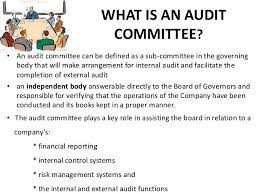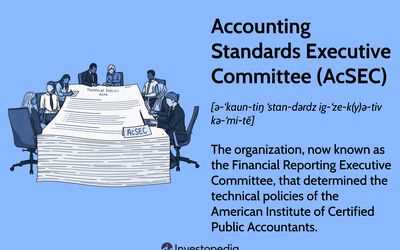Audit Committee Definition
An audit committee is a group of individuals responsible for overseeing the financial reporting process of a company. It is typically composed of members of the company’s board of directors who are independent and have financial expertise.
The main purpose of an audit committee is to provide oversight and ensure the integrity of the financial statements and reports. They review and monitor the company’s financial statements, internal controls, and risk management processes. The committee also works closely with the company’s external auditors to ensure that the financial statements are accurate and comply with relevant accounting standards.
The audit committee plays a crucial role in promoting transparency and accountability within the company. They help to identify and address any potential financial risks or irregularities, and ensure that appropriate actions are taken to mitigate them. The committee also acts as a liaison between the board of directors, management, and external auditors, facilitating effective communication and collaboration.
In addition to their oversight responsibilities, audit committees also play a role in the selection and appointment of external auditors. They evaluate the qualifications and independence of auditors, negotiate audit fees, and review the audit plan and findings. This helps to ensure that the company’s financial reporting is conducted in an objective and unbiased manner.
Overall, the audit committee serves as a critical safeguard for shareholders and stakeholders, ensuring that the company’s financial reporting is accurate, reliable, and in compliance with applicable laws and regulations.
| Key Responsibilities of an Audit Committee: |
|---|
| Reviewing financial statements and reports |
| Monitoring internal controls and risk management |
| Overseeing the external audit process |
| Addressing potential financial risks and irregularities |
| Facilitating communication between stakeholders |
| Selection and appointment of external auditors |
The audit committee plays a crucial role in ensuring the integrity and transparency of a company’s financial reporting process. It is responsible for overseeing the financial reporting process, internal controls, and compliance with legal and regulatory requirements.
Role of the Audit Committee
The primary role of the audit committee is to provide independent oversight of the company’s financial reporting process. This includes reviewing and approving financial statements, assessing the adequacy of internal controls, and ensuring compliance with applicable laws and regulations.
The audit committee also plays a key role in overseeing the external audit process. It selects and appoints the external auditors, reviews their independence and objectivity, and monitors the effectiveness of the audit process.
Composition of the Audit Committee
The audit committee is typically composed of independent directors who have the necessary financial expertise to understand and evaluate the company’s financial statements and internal controls. These directors are not involved in the day-to-day operations of the company, which ensures their independence and objectivity.
In addition to financial expertise, the audit committee members should also possess strong communication and analytical skills. They should be able to ask probing questions, challenge management’s assumptions, and critically evaluate the information presented to them.
Responsibilities of the Audit Committee
The responsibilities of the audit committee include:
1. Financial Reporting

The audit committee reviews and approves the company’s financial statements, ensuring that they are accurate, complete, and in compliance with accounting standards. They also assess the quality and transparency of financial disclosures to ensure that investors and stakeholders have access to reliable information.
2. Internal Controls

The audit committee assesses the adequacy and effectiveness of the company’s internal controls. They review the internal control systems, identify any weaknesses or deficiencies, and recommend improvements to strengthen the control environment. This helps to mitigate the risk of fraud, errors, and misstatements in the financial statements.
3. Compliance
The audit committee ensures that the company complies with applicable laws, regulations, and corporate governance standards. They review the company’s compliance policies and procedures, assess the effectiveness of compliance programs, and monitor any legal or regulatory developments that may impact the company’s operations.
4. External Audit
The audit committee oversees the external audit process to ensure its independence and effectiveness. They select and appoint the external auditors, review their audit plan and scope, and evaluate the audit findings and recommendations. This helps to maintain the integrity and credibility of the audit process.

Emily Bibb simplifies finance through bestselling books and articles, bridging complex concepts for everyday understanding. Engaging audiences via social media, she shares insights for financial success. Active in seminars and philanthropy, Bibb aims to create a more financially informed society, driven by her passion for empowering others.
